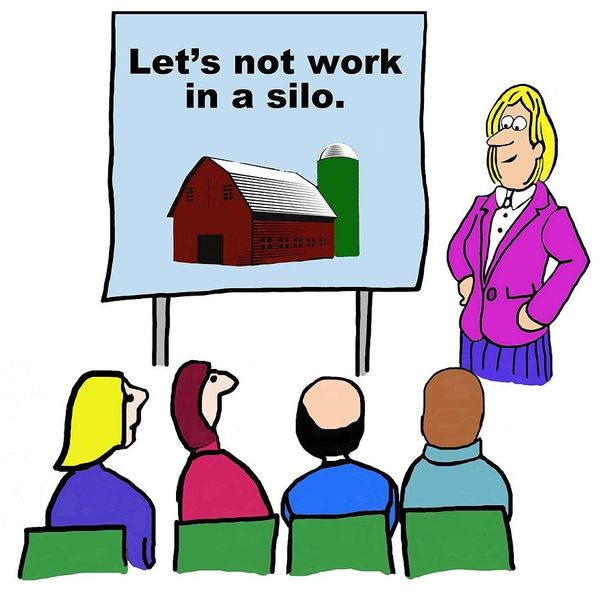
Sales is an art rather than a science. Sure, there are trainings out there that may give newbies a leg up, but a lot of the learning is done by being mentored by experienced salespeople and observing salespeople in action.
Unfortunately, there are several bad examples out there of "gems of wisdom" that are anything but. I am discussing a few of them.
Schmoozing Your Way To Your Clients' Hearts
There is certainly a stereotype of the salesperson as a master charmer. They know precisely what to say and how to say it to achieve their ultimate goal: sell.
I guess sales have been achieved purely because of such a charm offensive. Just not that many.
Behind the idea of the schmoozer is an assumption: Sales is the art of manipulating a client into entering into a business relationship. That supposes that most clients can be manipulatedâif only you turn on the charms and deploy your "secret tactics."
That is a terrible, very dangerous assumption.
In my decades of experience, clients are generally bright. They see right through attempts at manipulation and will hold manipulation against any salesperson foolish enough to attempt it.
I can tell you I have been on the other side of that fence, as we all have at some point in time, and made sure the manipulators would not get any of my budget. And I am not alone: I have also heard clients complain about salespeople who felt they were too "foxy."
Some don't go that far. They do not attempt to manipulate. But they want to become their clients' best buddies, so they keep buying.
Obviously, people like to buy from people they like or at least don't hate. But relying on friendship to carry the day is a sure way to miss quota. People buy to either solve a problem they have or gain a tangible advantage, neither of which has anything to do with friendship.
Find the right accounts, the clients where your products and services can make a positive difference. Then, treat clients with respect and work hard to ensure their success. They will like you for it, and you will achieve quota.
Leading The Conversation

âOther salespeople have a much more authoritarian approach. They want to be perceived as the definite reference for whatever they sell, and are ready to play hardball in the process.
They will explain (not always patiently) how the customer should think about their challenges. Of course, these explanations will always lead the clients to the inescapable conclusion that their offering is the best and that the client would be a fool not to purchase it.
Some will even try to shame you into a sale!
I saw this approach employed multiple times: follow-ups on LinkedIn stating, "Since I did not hear from you, it must mean you like to lose money" (no kidding!); a salesperson telling an important organization leader that she was wrong in front of her reports; another salesperson, visibly scripted, not giving a prospect a chance to engage in a meaningful conversation.
This results in a poor customer experience. Once again, it is about the salesperson being manipulative.
But in fact, it is even worse. Here, these salespeople are simply not listening at all.
Why is this worse? Because information is power, and your customer has information that can be worth gold to you. Yes, even if they provide you with details that disqualify them as potential customers.
By not having a conversation, these folks deprive themselves of valuable information. Instead, the best salespeople are excellent listeners. They try to understand what their clients are going through. They empathize first and then think about whether they can lend a helping hand.
They do not put together a dog-and-pony show. They can do demos and presentations, but they monitor their audience's reactions and collect feedback to enhance their value to their clients. In other words, they keep the meetings conversational. By doing so, they build trust, the currency of choice for closing deals.
Closing Will Take Care Of Itself

Keeping it conversational does not mean not putting sufficient effort into a deal. Sales are not easy, and momentum can be lost for a number of reasons. Without proper follow-up and a sense of urgency, one salesperson may miss quota.
It sounds like incentive plans should prevent this. And yet, I have seen this happen for many reasons, in the form of opportunities left in the funnel whose stakeholders were not contacted for months.
In some cases, that was because this was a big deal that was likely lostâand the salesperson did not want to confront that most uncomfortable realization. In others, it was a lack of stamina and drive.
Unfortunately, self-delusion and lack of determination will not help you meet your quota. There are enough external reasons why a deal may hit a snag and lose momentum; you don't need to add self-inflicted injury to the list.
I tell the ones I manage this: We can fail, but we must try perfectly every time.
Lying Your Way To A Sale

All of the examples above are sure ways to lose accounts and sales momentum. But I feel this one is in a league all of its own. So much so that it is frankly incredible that anyoneâANYONEâwould feel this is acceptable at all.
That ought to be the worst stereotype in the world: the salesperson selling snake oil.
Yet, I saw this with my own eyes, like when a competitor told a prospect of mine that their tool was the only one that could achieve a certain software standard because of a feature unique to their tool.
Technically, their argument was built on sand: in fact, other tools lacking their unique feature were used to meet that standard.
This was also done in bad faith, not ignorance, quite a few times. The idea: if anyone pointed out this was not the case, the customer would chalk it off to that someone being defensive.
This is sometimes called planting a landmine. The problem is that it may maim those who planted it.
I called their bluff, listed a number of accounts that proved them wrong, and said I was really angry because they obviously gave our whole industry a bad rap.
We won that deal.
That is why lying is never a good way to win a sale. Chances are someone will call you out. It may happen immediately, with your client knowing better and showing you the door. They are smart, after all.
Even if they don't detect it immediately, it is bound to bite back, one way or another. And when it does, it will be perceived as a breach of trust.
No trust, no deals. It is really that simple.
And you? What are your top sales myths? Leave them in a commentâthey will certainly inspire me for future parts!











































